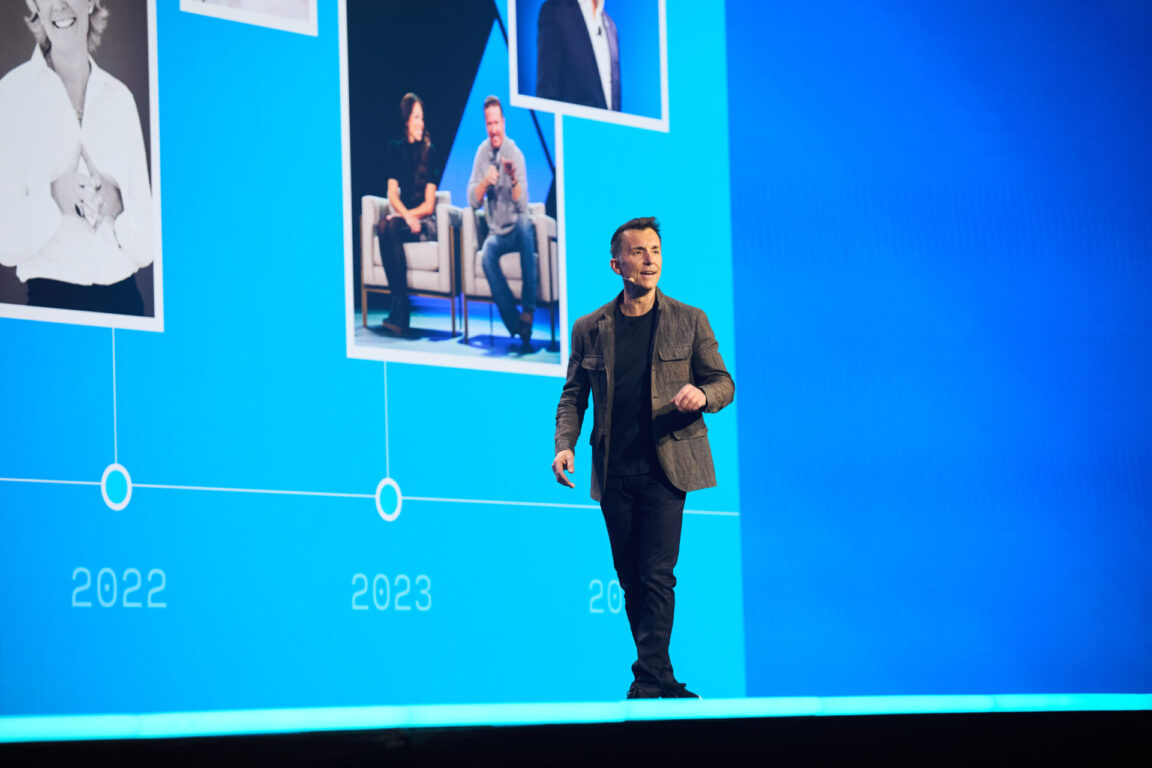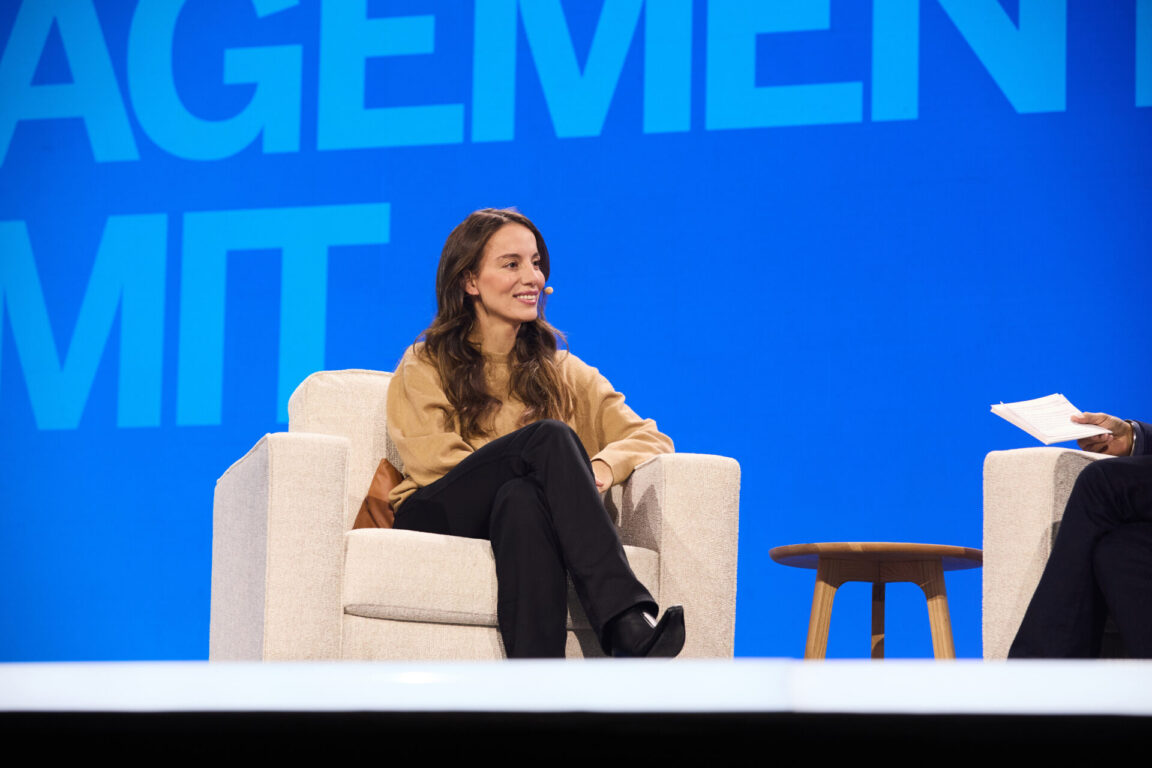Qualtrics X4: HR is ‘trying to understand what is AI hype, what is AI product truth’
UNLEASH attended the tech giant’s X4 show in Salt Lake City – here are our top takeaways from the CEOs of Qualtrics, Delta and American Express, plus OpenAI’s CTO!
Conference Insights
AI is a top concern for HR and business leaders right now.
But how do they cut through the hype, and make sure AI is truly driving business value?
This was a major topic at Qualtrics X4 - read on for insights from Qualtrics executives, including exclusive comments from president of engineering Brad Anderson, as well as CEOs of Delta, Amex and the CTO of OpenAI.
Tech giant Qualtrics’ X4: The Experience Management Summit returned to Salt Lake City, Utah, on May 1 2024.
In welcoming the 10,000 attendees of the event, CEO Zig Serafin kicked off by declaring that “HR [is] taking a huge seat at the table” on managing experiences at work.
The good news is that, as Delta CEO Ed Bastian shared during a keynote panel session, the economy is really strong in the experience world.
During the pandemic people bought a lot of things – so the goods economy boomed – but they missed out on experiences, like travel, dining out, the theatre
For Bastian, “today our world is all about where you’re going, what you’re doing, what can you experience” – and he says that this is gong to be the new normal, “this is not a temporary blip”.
Sitting on the same panel as Bastian was American Express’ CEO Steve Squeri – and he agreed that experiences are here to stay.
Of course, this doesn’t mean there aren’t significant challenges facing HR and business leaders in creating top notch employee experiences.
Not only is employee engagement and trust in leaders in leadership at all-time low, but skills (and talent) shortages continue to plague all different types of businesses globally and intention to stay is declining.
However, as Qualtrics president of product and engineering, Brad Anderson, told UNLEASH in an exclusive interview, the biggest challenge he is hearing from Qualtrics customers when he meets with them is AI.
“Every leader wants to talk about AI”, and what they are “trying to understand what is AI hype, what is AI product truth”.
AI, EX and Qualtrics
Qualtrics is a on mission to help their 20,000 clients cut through that hype, and provide real scenarios where AI is going to help make “that experience that I’m delivering to my employees and customers better”, adds Anderson.
“AI has to solve real problems”, added Anderson during a media briefing ahead of X4.
As Serafin, Qualtrics’ CEO, shared during his keynote: “With AI, we’re going to remove everyday mundane tasks”, and give leaders “more time to carry out mission critical work”, and help them to make better decisions.

Qualtrics CEO Zig Serafin on stage on day 1 of X4.
Anderson shares a specific example with UNLEASH.
One of the airlines that Qualtrics has as a client was trying to figure out how to improve intent to stay, and how to improve customer satisfaction – so the tech giant “took all their employee and customer data, and put it together on our platform, and then cut it by airport”.
They could see in which locations both employee experience and customer experience were high, and they realized the key reasons for that was two-fold.
First, that frontline workers there believed that their managers understood how hard their jobs were, and led with empathy, and the second was psychological safety to talk about mental health and wellbeing.
Without using AI to help do this analysis, it would’ve been impossible for this airline to glean these insights and make the appropriate changes.
“We see this come up everywhere – it’s not more days off, it’s not more free food – it is cultural things” that impact employee engagement, and as a result customer satisfaction and business bottom lines.
Anderson’s advice to HR leaders unsure where to spend their money on AI (and HR tech in general) is focus on the two or three use cases that could really make a difference – and make sure that those tools are valuable to employees, so they keep coming back and using them.
He continues: “The thing I really focus on with leaders [is] what are the tools that your people really believe are making them better” at work?
Microsoft AI veteran joins Qualtrics
AI is not new to Qualtrics, but it has doubled down and increased its investment significantly in the last year or so; in July 2023, the tech giant announced a $500 million investment over the next four years to push the AI boundaries.
Some new AI tools were announced at X4 in Salt Lake City – notably Qualtrics AI and Qualtrics Assist – but Qualtrics’ commitment to AI is evident beyond product development. .
Just a week before this X4 conference in Salt Lake City, the tech giant also announced a new appointment in the AI space.
After a 33-year tenure at Microsoft where he crossed paths with both Serafin and Anderson, AI guru Gurdeep Pall has joined Qualtrics as president of AI strategy – he will be the first person to take on this role.
In his UNLEASH interview, Anderson shared why he is so excited for Pall to join Qualtrics.
“Gurdeep is on of a kind, very trusteed leader inside Microsoft”, and one of the “most impactful influential AI leaders” more generally.
“What we know he is going to bring for us is a whole broader set of thinking about the kinds of scenarios that we can go solve with AI”, adds Anderson.
The idea is that Pall will work on three-to-five-year AI moonshot innovations, and figuring out what “really game-changing innovations we could bring to the market”.
During his keynote on day one of X4, Pall echoed this excitement, and his optimism about the future of AI.
The changes that will come because of AI aren’t ones that “we can even imagine” – the interface between human and machines will be redefined with AI.
In my mind the most important impact of AI is how AI helps us understand humans in a really deep way at scale.”
Pall then interviewed OpenAI’s CTO Mira Murati who shared the “magic” of generative AI around the scalability of its insights across different domains.

OpenAI CTO Mira Murati on stage on day 1 of X4.
For her, it was so “surprising to see how quickly these technologies have integrated into the economy”, how quickly they “burst into the public consciousness”.
That’s completely different from the past, when it often took a while for technologies to penetrate through society.
Pall noted that the breadth of adoption of generative AI, and especially GPT, was “unprecedented”.
There’s so much potential for it to continue to transform “the quality of life for people all over the world”, stated Murati.
The key now is ensuring that generative AI is truly “safe for the world” – and partnership is essential to success here, and it needs to be between businesses, civil society, governments and regulators.
Sign up to the UNLEASH Newsletter
Get the Editor’s picks of the week delivered straight to your inbox!

Chief Reporter
Allie is an award-winning business journalist and can be reached at alexandra@unleash.ai.

